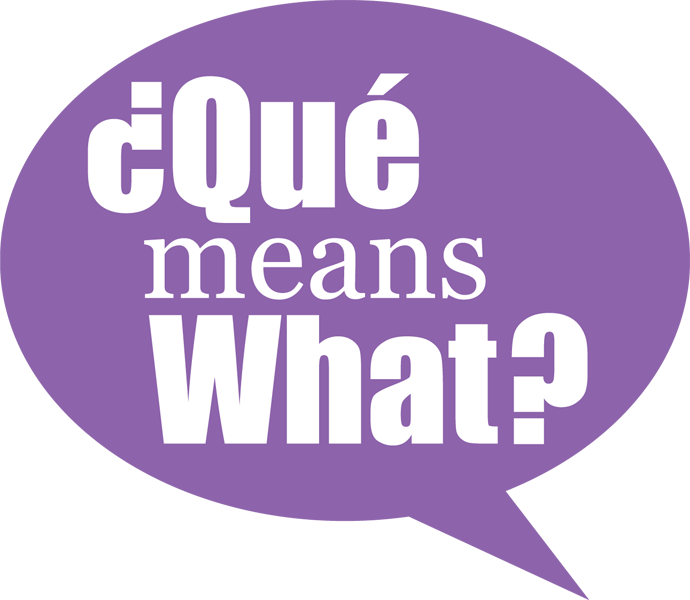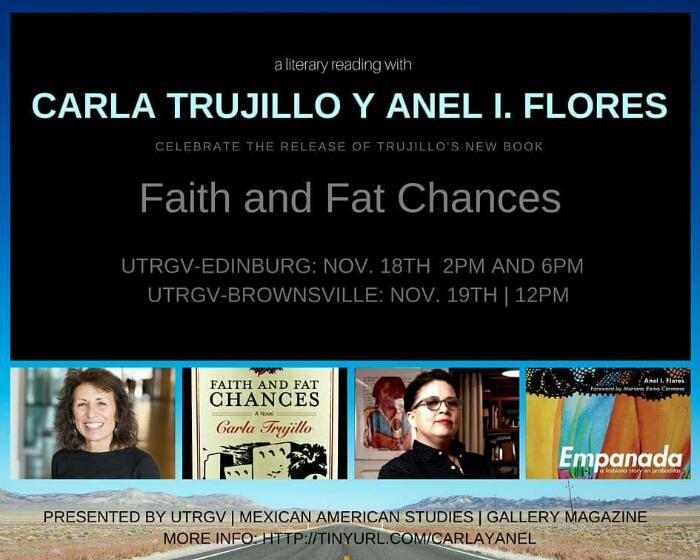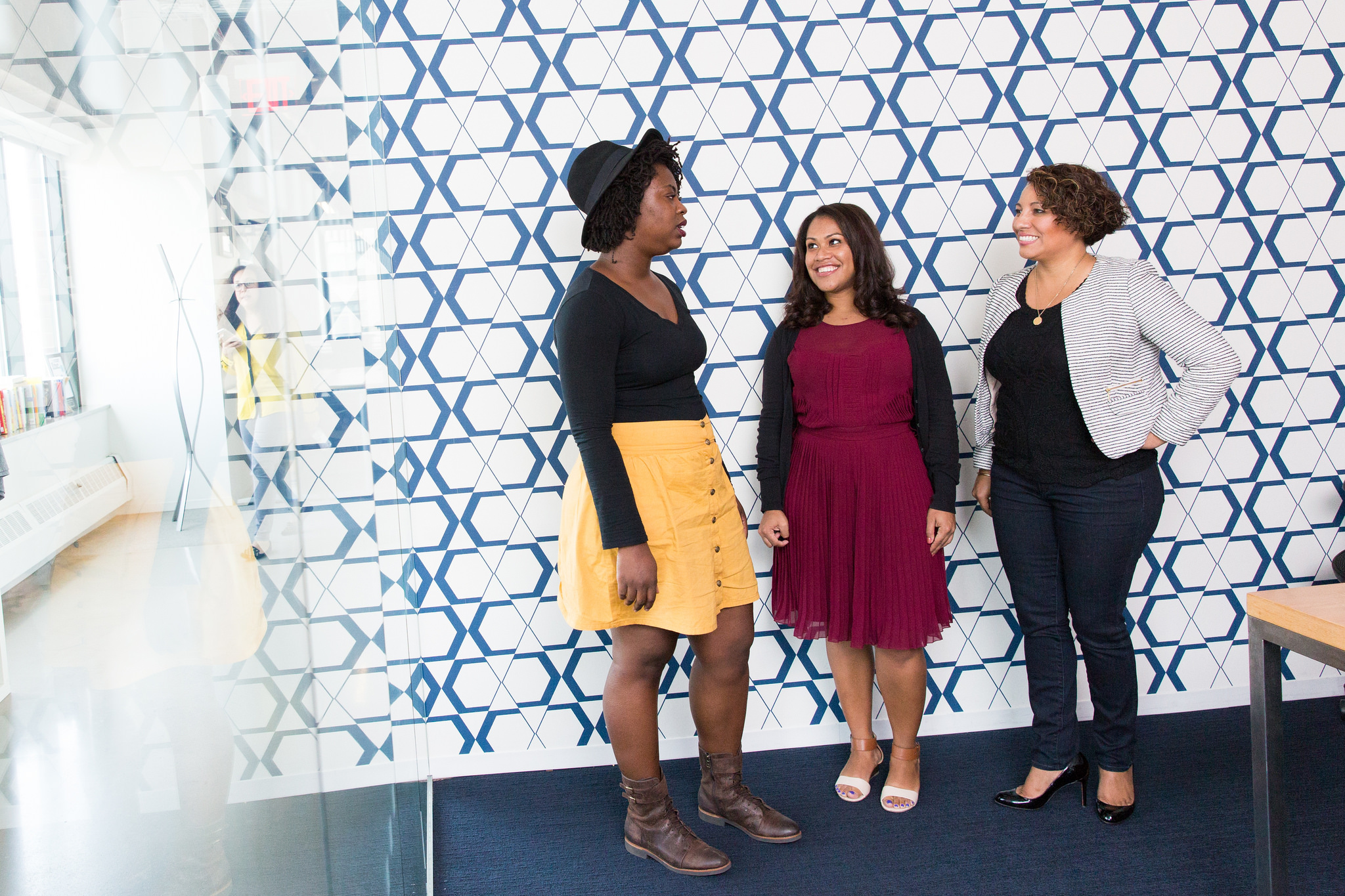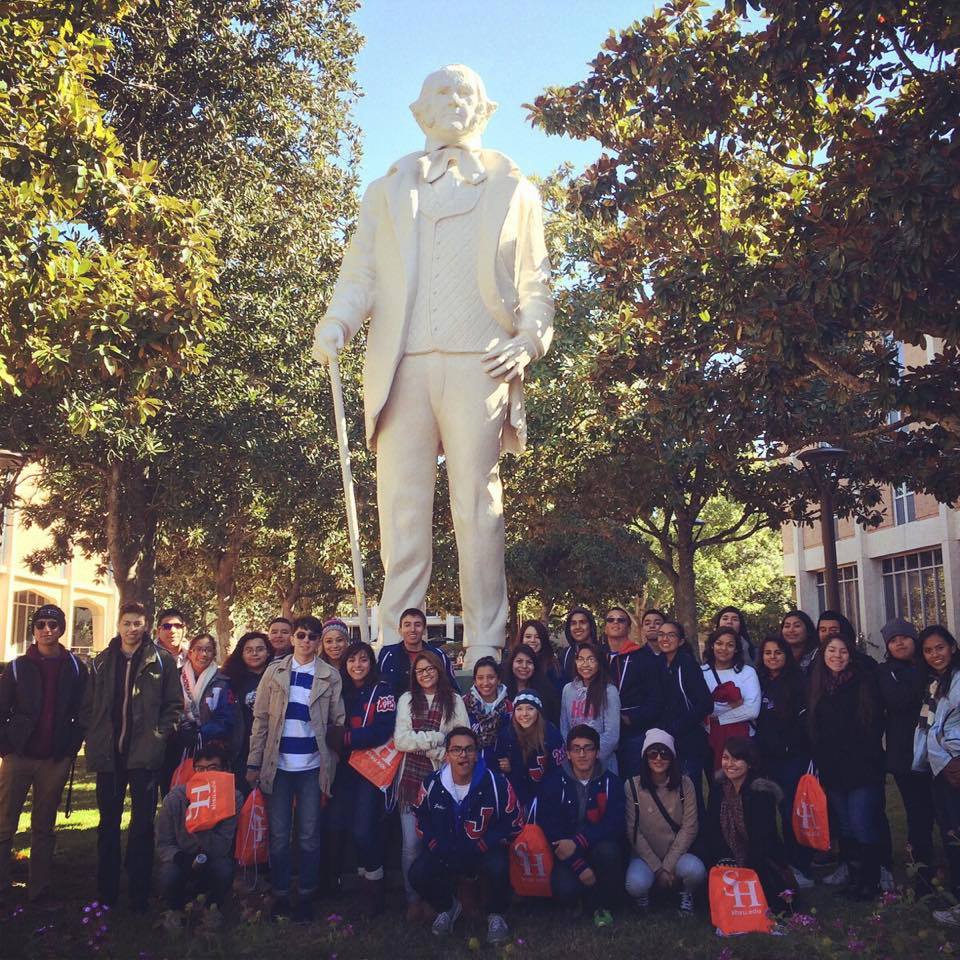Two Chicana writers will be at UT – Rio Grande Valley this week. Don’t miss Carla Trujillo and Anel I. Flores.
ABOUT CARLA TRUJILLO:
Carla Trujillo was born in New Mexico and received a PhD in educational psychology
from the University of Wisconsin, Madison. Her first novel, What Night Brings
(Curbstone Press, 2003), received the Miguel Mármol Prize for best first work of fiction
by a Latino/a writer, the Latino Book Award for fiction, and the Paterson Fiction Prize. It
was a finalist for the LAMBDA Literary Award, ForeWord Magazine’s Book of the Year,
and was an honorable mention for the Gustavas Myers Book Award. What Night Brings
was one of three finalists for the University of Washington’s “common book” for 2009.
Carla is the editor of Living Chicana Theory (1998) and Chicana Lesbians: The Girls
Our Mothers Warned Us About (1991), which won the Lambda Literary Award and the
Out/Write Vanguard Award. The anthologies and the novel are widely used in college
and high school classrooms. Carla has also written various articles on identity and
higher education. She is a founding member Macondo Writers Workshop. In addition to
Macondo, she has taught at Lambda Literary Foundation’s Emerging Writers Retreat,
U.C. Berkeley, Mills College, and San Francisco State University. Carla lives in Berkeley, California.
ABOUT ANEL I. FLORES:
Tejana border-born lesbiana, writer, visual artist, metal-smith, educator and independent scholar earned her BA in English and her MFA in Creative Writing. Flores completed additional studies in gold, silver and bronze sculpture at the Instituto Allende in San Miguel de Allende, Mexico and has been instructed by authors Leslie Marmon-Silko, Cherrie Morraga, Sandra Cisneros, Elena Georgiou, Mariana Romo-Carmona and Sharon Bridgeforth.
Anel is author of novel, Empanada: A Lesbiana Story en Probaditas (Kórima Press & Evelyn Street Press), and play Empanda, which has been produced at multiple venues including the National Museum of Mexican Art in Chicago, MACLA in San Jose, CA, MECA in Houston, the Mexican American Cultural Center in Austin, the Esperanza Peace and Justice Center in San Antonio, the University of Texas, Trinity University and at national art festivals.





